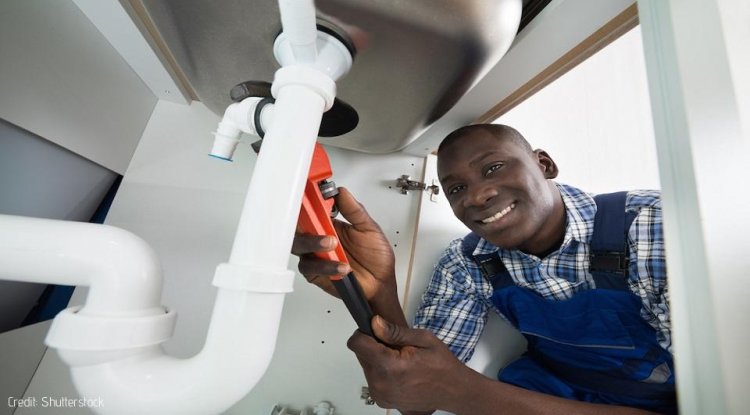
Plumbers play a vital role in maintaining the quality and safety of water in homes. From installing pipes and fixtures to performing repairs and maintenance, their work ensures clean, safe water flows whenever you need it. The licensed plumbers have the experience, skills, and tools to size, place, and connect pipes and fixtures according to building codes and safety standards. For example, they ensure pipes are buried deep enough to avoid freezing, are made of approved materials that won’t corrode or leach contaminants, and that valves and backflow preventers are included to avoid contamination entering from outside sources. Fixtures are secured and sealed to prevent leaks that could damage property or breed mold and bacteria. Overall, good installation by qualified plumbers results in a water system designed to keep clean water in and hazards out.
Repairing leaks and damage
Even in the best-installed systems, wear and tear over time results in leaks, cracks, and damage compromising safety. Plumbers inspect systems and components regularly to check for issues. They can spot and fix problems like pinhole pipe leaks, worn washers, and seals around fixtures, corroded pipes, or areas of backflow. Making these repairs not only prevents water waste and property damage but ensures contaminants have no avenue to enter the plumbing system. Plumbers also look for signs of root intrusion, mineral buildup, and other blockages that may indicate it’s time to replace deteriorating pipes. Proactive repairs maintain water quality by eliminating vulnerabilities that could allow contamination.
Disinfection and flushing
Despite preventive measures, contaminants into a home are Sydney CBD plumber system. Plumbers have the expertise to clear out contamination and disinfect compromised pipes and tanks. For bacterial growth like E. coli, they inject chlorine directly into the system to kill microorganisms. For sediment buildup or chemical contamination like lead, plumbers flush the pipes thoroughly to wash away debris and scale. They also shock chlorinate wells and water tanks to kill algae, bacteria, and other biological hazards that impact groundwater sources. These disinfection methods help restore water to a clean, safe state after contamination occurs.
Testing and inspection
How do plumbers know if contamination exists so they take corrective action? Testing and inspection are key. Plumbers use specialized equipment to test water samples from taps, wells, water heaters, and other points in the system. They check critical factors like bacterial levels and concentrations of heavy metals, minerals, and organic compounds. Visual inspections also uncover issues like cross-connections of wastewater piping or deteriorating well caps that could endanger water quality. Based on test results and inspections, plumbers recommend solutions like installing filtration systems or treatments to resolve any risks. Staying on top of potential hazards through testing and inspection is the best way to keep water pure and healthy.
Water heater maintenance
Water heaters provide an environment where bacteria, rust, and sediment accumulate if not properly maintained. Plumbers prevent contamination and system degradation with regular water heater care. They drain and flush heaters to control sediment buildup. Anode rods are inspected and replaced to protect against rust corrosion. Temperatures and pressure levels are adjusted to prevent bacterial growth. With routine service, plumbers make sure heaters don’t become breeding grounds for contamination.
